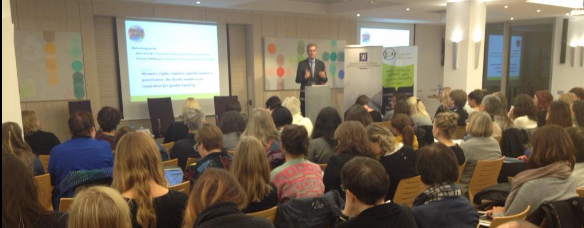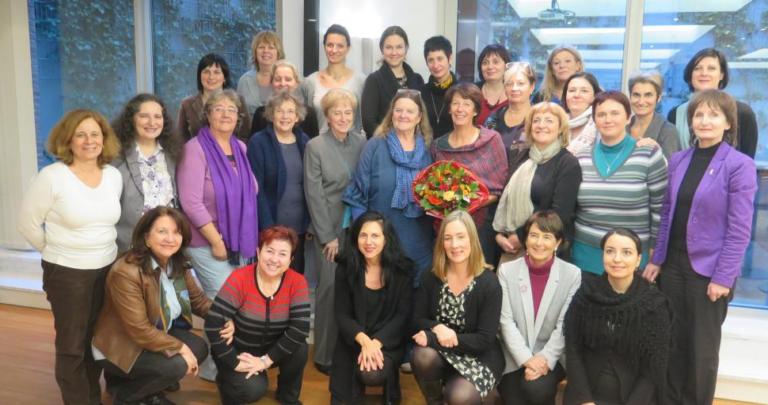[Press release of IPPF, 9 July 2014] New research published today highlights how the law in different countries often restricts young people’s access to sexual and reproductive health services.
A series of reports by the International Planned Parenthood Federation (IPPF) and Coram Children’s Legal Centre (CCLC) also found that taboos and stigma related to young people’s sexuality are often made worse by restrictive laws.
The series called ‘Over-protected and Under-served: A multi-country study on legal barriers to young people’s access to sexual and reproductive health (SRH) services’ provides a global overview of laws relating to consent, sexual expression, equality and violence.
It looks at three case studies in the UK, Senegal and El Salvador – and explores how young people’s knowledge and perceptions of the law impact their access to sexual and reproductive health services.
Findings from all three countries highlight young people’s uncertainty and confusion about whether they have the right to access SRH services:
In all three countries, young people lacked concrete knowledge of what the law actually says.
The age limits that exist in law for legal majority, sexual consent, marriage and access to SRH services are conflated and confused by young people and service providers alike; and are often interpreted as restricting young people’s access to services, even in cases where they do not directly, or explicitly, do so.
The rationale for age-restrictive laws is often given as ‘protection’; however, if protection means the promotion of young people’s health, best interests and well-being, then such laws are not fit for purpose. Rather, laws that criminalize sexual activity or restrict their access to SRH services risk exposing many sexually active young people to unwanted pregnancy and sexually-transmitted infections, including HIV.
Restrictive laws function to regulate young people’s sexual identity and behaviour, and have a disproportionately negative impact on young people who do not conform to dominant expectations and stereotypes about gender. Homosexual, transgender and queer young people are especially marginalised from access to services, as are many young women and girls, and young people who are victims of sexual violence and rape.
Where young people’s right to access sexual and reproductive health services is positively articulated in domestic legislation and statutory guidance, it promotes the best interests of young people and facilitates their access to SRH services.
IPPF commissioned the research to raise awareness on the direct and indirect impact that laws are having on young people’s access to SRH services. The reports are intended to contribute to international dialogue about young people’s evolving capacities and sexual rights.
Kirsten Anderson, Legal Research and Policy Manager at CCLC said: “Being denied confidential access to services like contraception, STI testing and sexual health information and advice can have a negative impact on the ability of young people to make informed, healthy decisions and can leave them in an extremely vulnerable position.”
“Every country in the world has passed laws which regulate or restrict young people’s access to SRH services. The research shows that laws, including those laws that are ostensibly designed to protect young people, can impose barriers to young people accessing SRH services”
Doortje Braeken, Senior Adviser: Adolescents, Gender and Rights for IPPF, said launching the reports, “It goes without saying that we want to live in a world where young people are not denied their rights or worse still, put at risk of abuse. But we know through IPPF’s work globally that, for example, girls are not able to turn decisions about their lives into reality due to laws requiring parental or spousal consent.”
“We also know that young people are denied access because they are unmarried or because of their sexual orientation or gender identity. In all these cases, young people are not getting the information required to make informed choices about sex, sexuality and relationships.”
NOTES FOR EDITORS
To read the series of reports entitled Over-protected and Under-served: A multi-country study on legal barriers to young people’s access to sexual and reproductive health services please go here.
For more information contact Tia Jeewa Tjeewa@ippf.org 02089398227 or Kat Watson kawatson@ippf.org
Founded in 1952, The International Planned Parenthood Federation (IPPF) is both a service provider and an advocate of sexual and reproductive health and rights. The organization is a worldwide network of 152 Member Associations active in more than 170 countries. Learn more at www.ippf.org.
Coram Children’s Legal Centre (CCLC) www.childrenslegalcentre.com is part of the Coram group of charities, and specialises in law and policy affecting children and young people.
CCLC provides free legal information, advice and representation to children, young people, their families, carers and professionals, as well as international consultancy on child law and children’s rights.



